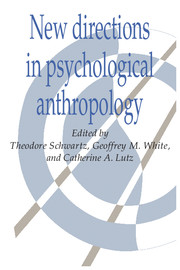Book contents
- Frontmatter
- Contents
- List of contributors
- Introduction
- I Cognition and social selves
- II Learning to be human
- 5 Language as tool in the socialization and apprehension of cultural meanings
- 6 Human development in psychological anthropology
- III The body's person
- IV Psychiatry and its contexts
- V Psychoanalytic approaches
- VI Disciplinary perspectives
- Index
6 - Human development in psychological anthropology
Published online by Cambridge University Press: 05 June 2012
- Frontmatter
- Contents
- List of contributors
- Introduction
- I Cognition and social selves
- II Learning to be human
- 5 Language as tool in the socialization and apprehension of cultural meanings
- 6 Human development in psychological anthropology
- III The body's person
- IV Psychiatry and its contexts
- V Psychoanalytic approaches
- VI Disciplinary perspectives
- Index
Summary
Interest in how children are reared and how they develop in other cultures is probably as old as cross-cultural observation itself, but this chapter's retrospective and prospective reflections are based on a genealogical framework that starts with Franz Boas, the founder of modern American cultural anthropology, as the intellectual great-grandfather of present-day thinking about human development in psychological anthropology. As we develop more of the genealogy and look ahead to future possibilities, this chapter will address the fundamental question of why anthropologists have been interested in human development. I will suggest that within the field of psychological anthropology, interest in human development has been motivated by two main concerns. One is a reluctance to let psychologists define the parameters of normal psychological development on the basis of a highly selected population – that is, the children (mostly white and middle class) of industrialized Western civilization. The second, more central concern that has motivated psychological anthropologists to study human development has been to advance our understanding of culture – what it is, where it resides, and how it gets there. In order to see how this second concern has been expressed, we must look beyond our own ancestors to consider more general intellectual trends in scientific inquiry and its methods. These trends have intersected with psychological anthropologists' research on human development to influence the ways in which we construe culture and the role of human development in cultural processes.
- Type
- Chapter
- Information
- New Directions in Psychological Anthropology , pp. 102 - 122Publisher: Cambridge University PressPrint publication year: 1993
- 1
- Cited by



